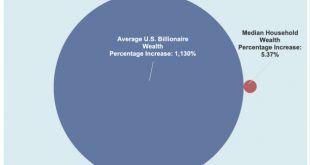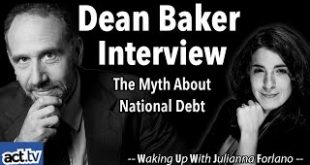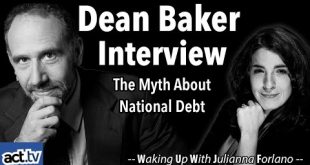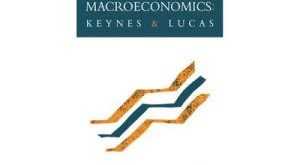We provide on-location video production services throughout Florida and the USA. This video was filmed at Lake Monroe in Sanford, Florida. Music liscenced through www.audioblocks.com
Read More »Haavelmo and modern probabilistic econometrics — a critical-realist perspective (wonkish)
from Lars Syll Mainstream economists often hold the view that criticisms of econometrics are the conclusions of sadly misinformed and misguided people who dislike and do not understand much of it. This is a gross misapprehension. To be careful and cautious is not equivalent to dislike. The ordinary deductivist ‘textbook approach’ to econometrics views the modelling process as foremost an estimation problem since one (at least implicitly) assumes that the model provided by economic theory...
Read More »Saving journalism will require some new thinking
from Dean Baker There has been a new wave of despair among journalists in the last couple of weeks as several major news outlets, including the Los Angeles Times and McClatchy News Service, announced layoffs and/or pay cuts. The immediate cause is the coronavirus. Pandemics sharply reduce advertising opportunities, but the underlying model is clearly not viable for most news outlets. There is a limited amount of money that businesses are willing to pay for web ads, which is now by far the...
Read More »Billionaire wealth in the USA
from David Ruccio A new report from the Institute for Policy Studies, “Billionaire Bonanza 2020: Wealth Windfalls, Tumbling Taxes, and Pandemic Profiteers,” reveals that the wealth of U.S. billionaires is indeed staying at home. Since 10 April 2020, there’s been both an increase in the number of billionaires (to 629) and a surge in billionaire net worth. Billionaire wealth increased $282 billion, or 9.5 percent, in just 23 days, bringing the combined net worth of the billionaire class...
Read More »Dean Baker Interview: The Myth About National Debt
Follow on Twitch: https://www.twitch.tv/actdottv Julianna welcomes back recurring guest Dean Baker, macroeconomist and co-founder of the Center for Economic and Policy Research, to discuss the myth that adding to the country’s debt will slow down economic growth. He writes that those sounding the alarm about the national debt, are “desperately trying to create a problem where one does not exist.” Dean Baker co-founded The Center for Economic and Policy Research in 1999....
Read More »Dean Baker Interview: The Myth About National Debt
Follow on Twitch: https://www.twitch.tv/actdottv Julianna welcomes back recurring guest Dean Baker, macroeconomist and co-founder of the Center for Economic and Policy Research, to discuss the myth that adding to the country’s debt will slow down economic growth. He writes that those sounding the alarm about the national debt, are “desperately trying to create a problem where one does not exist.” Dean Baker co-founded The Center for Economic and Policy Research in 1999. His areas of...
Read More »Lucas’ Copernican revolution
from Lars Syll In Michel De Vroey’s version of the history of macroeconomics, Robert Lucas’ declaration of the need for macroeconomics to be pursued only within ‘equilibrium discipline’ and declaring equilibrium to exist as a postulate, is hailed as a ‘Copernican revolution.’ Equilibrium is not to be considered something that characterises real economies, but rather “a property of the way we look at things.” De Vroey, approvingly, notices that this — as well as Lucas’ banning of...
Read More »FIT Admitted Students Day Welcome from Baker School Dean Steven Frumkin
This video is about Admitted
Read More »Pandemic musings
from Peter Radford I have been digging around a fair bit lately trying to understand the role of economics in the extent of the inequality being laid bare by the pandemic — more on that later. A few interesting nuggets worthy of a quick note popped out along the way. Thomas Phillipon opens chapter one of his recent book this way: “The big debates in economics are about growth and inequality. As economists, we seek to understand how and why countries grow and how they divide income among...
Read More »Debt and deficits with the coronavirus
from Dean Baker For all the suffering caused by the pandemic, one important positive effect is that it may lead to clearer thinking about government debt and deficits. To Congress’s credit, it has focused on dealing with the problem of sustaining the country through a period in which much of the economy is shut down, rather than worrying about the large deficit it will run this year, as well as the amount it is adding to the national debt. (I strongly suspect that this would not be the...
Read More » Real-World Economics Review
Real-World Economics Review







